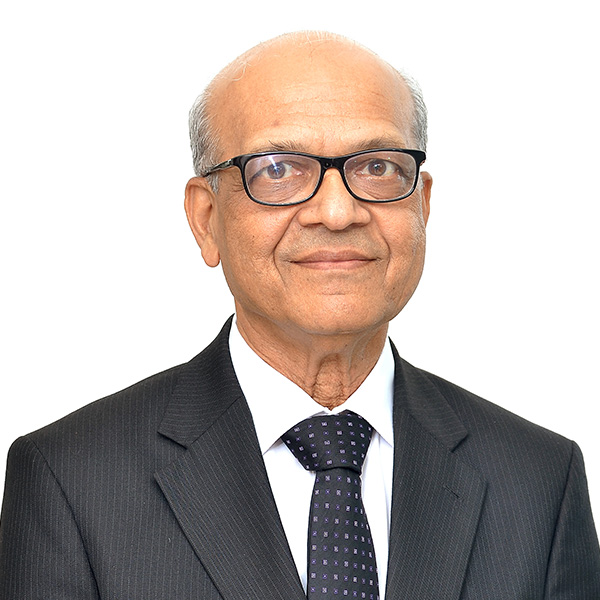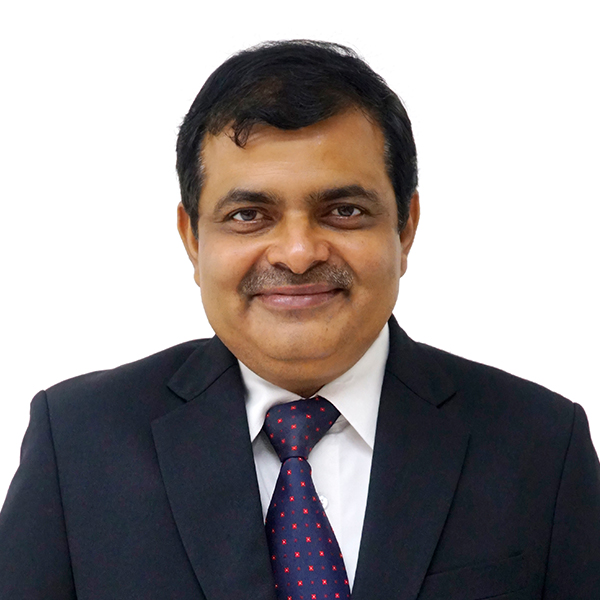The conundrum relating to levy of trade remedial duties
Trade Remedial Duties, usually in the form of Anti-dumping, Countervailing or Safeguard duty, are imposed by the Ministry of Finance, on the basis of the recommendation of the Designated Authority, DGTR, Ministry of Commerce. These duties are imposed to protect the Indian domestic industries from the ill-effect of imports. While Safeguard duty is a protectionist measure imposed to safeguard Indian industries from sudden surge in imports, Anti-dumping and Countervailing duty are punitive duties imposed to punish the offending dumped or subsidised imports, causing material injury to the domestic industry. The object and purpose of imposition of trade remedial duties is therefore significantly different from the “taxes” usually imposed by the Central Government for revenue collection.
The imposition of trade remedial duties is governed by the relevant WTO Agreements read with the Customs Tariff Act, 1975 and the rules made thereunder. Under the rules, the Designated Authority is appointed as an expert body to conduct investigation and determine whether imposition of trade remedial duties is warranted in facts of a particular case. The investigations carried out by the Designated Authority are quasi-judicial in nature, which includes examination of data submitted and legal submissions made by the Domestic industry as also the concerned governments, exporters, importers, and users of the product concerned. These investigations usually span over a period of 12 months, during which period the Designated Authority conducts data verification visits, public hearing and considers the written submissions and the rejoinder submissions filed by the participating parties and thereafter issues its disclosure statement disclosing essential facts determined by it and calling final comments on the same from all interested parties. After considering the comments of all the parties, detailed final findings are issued wherein the conclusion and recommendation of the Designated Authority on whether the duties are required to be imposed and if so, the quantum of duty that would be adequate are noted. On the basis of these final findings, the duties may be imposed by the Central government (Ministry of Finance) by issuing appropriate notifications.
Statistically, from 1991 to 2020, there have been only 7 instances, out of total 1052 cases, where the duties as recommended by the Designated Authority were not imposed. However, the rate of rejections has gone up exponentially in the recent times, and between September, 2020 to October’ 2022, more than 70 recommendations, out of a total of 120, have been rejected. Interestingly, in almost all these cases, the recommendations have been rejected by Ministry of Finance by issuing a one-line office memorandum communicating its decision to not impose the duties, without giving any reason for the same.
The staggering increase in the rate of rejection of the Designated Authority’s recommendations has led to multiple appeals and writ petitions being filed before the CESTAT, as also various High Courts. All the decisions rendered on the issue so far consistently hold that the MoF’s decision whether or not to impose trade remedial duties is quasi-judicial in nature and therefore, principles of natural justice were required to be followed. Additionally, the CESTAT while deciding a bunch of such appeals in Apcotex Case1, had also held that even if the said power is assumed to be legislative, it would still be a piece of conditional legislation falling under the third category of conditional legislation as noted by the Hon’ble Supreme Court in K. Sabanayagam ((1998) 1 SCC 318), which also requires the broad principles of natural justice to be followed. The matters have been remanded to the MoF to pass a reasoned order and if it is of the view that the recommendation of the Designated Authority is not to be accepted, it was directed to communicate the relevant issues weighing in its mind for not imposing the duties to the domestic industry, so as to give them an opportunity to file representation on those points.
These CESTAT orders have been challenged by the Central Government before the Delhi High Court, wherein as an ad-interim relief to the domestic industry, the Hon’ble High Court had directed the Central Government to provisionally assess the imports of all such concerned products in the interim. These interims orders were subsequently confirmed by the Supreme Court by dismissing the SLPs filed by Central Government against the same. Following these interim orders, the CESTAT has also, in subsequent cases, directed provisional assessment to be carried in the interim. Surprisingly, none of the said orders, whether of provisional assessment or direction to pass a reasoned order, have yet been implemented by the Ministry of Finance, despite there being no stay against the same.
The issue is currently pending before various High Courts as well as the Supreme Court, and the Central Government has moved an application before the Supreme Court requesting to transfer all such cases before one forum.
The principle defence being taken by the Central Government is that imposition of any tax/duty is a sovereign legislative function and therefore, cannot be subjected to judicial review. Additionally, specific to the facts of some of the cases, it has been argued that the decision to not impose the duties was taken in public interest or was based on condition or profitability of the domestic industry therein, quantum of imports, needs of user industries as also comments received from other government departments etc. However, none of these issues or reports have been communicated or shared with the concerned domestic industries, whose interests are directly affected by non-imposition of the duties.
Whether imposition of trade remedial duties is a legislative function
The primary stand taken by the Ministry of Finance is that since imposition of duties is a legislative function, it cannot be subjected to judicial review. This argument is contrary to the decision of Hon’ble Supreme Court in Reliance Industries Ltd.2 case, wherein it was explicitly held that imposition of anti-dumping duties is quasi-judicial in nature. Moreover, in Saurashtra Chemicals case3 as well, it was held by the Supreme Court that an appeal lies before CESTAT only against the final decision of the Central Government (while issuing duty notification) and not against the final findings of the Designated Authority, which is only recommendatory. Thus, as the notification imposing duty was held to be appealable, it, evidently, cannot be considered as “legislative”.
Ignoring the above settled law, the MoF is its submissions has relied heavily on the decision of Delhi High Court in Jindal Poly4 case to argue that the decision of the Central Government whether or not to impose trade remedial duties is a legislative function. The said decision was rendered on the point whether in cases of negative final findings, i.e. where the Designated Authority does not recommend imposition of duties, an appeal would lie before the CESTAT against such negative final findings. In this context, the Delhi High Court had held that in case of negative final findings, such final findings are not recommendatory but final by itself, as no further determination required to be made by the Ministry of Finance. Therefore, the negative final finding of the Designated Authority becomes the final determination by Central Government and therefore, an appeal under Section 9C would lie against the same. However, qua the positive final findings, i.e. final findings recommending imposition of duties, it was held that they are only recommendatory and the final determination is required to be made by MoF after considering such final findings, therefore, an appeal would lie before the CESTAT only against the final decision of the Central Government (i.e. MoF) and not against the final findings of the Designated Authority. In this context, that Delhi High court had observed that in case of positive final findings, the Central Government (MoF) is required to make further determination and subsequently issue a subordinate legislation by way of a notification imposing the duties.
The Central Government seems to be myopically reading the decision in the Jindal Poly case to argue that the imposition of trade remedial duties is a legislative function. While so arguing, the MoF has failed to appreciate that the Delhi High Court has clearly held that in cases of positive final findings, the final findings are only recommendatory and the final determination is to be made by the Ministry of Finance, and thereafter a notification imposing the levy is issued. It was noted that in such cases, it is the final determination of the MoF that is appealable before CESTAT. Thus, even the decision in the Jindal Poly case does not support the argument being advanced by the Central Government.
In any case, the Rajasthan High Court in J.K. Industries Ltd. vs Union Of India5, after discussing the provisions of Section 9A in detail, has held that the power of Central Government to impose anti-dumping duty squarely falls in the third category of conditional delegation of legislative function, as enunciated by Supreme Court in K. Sabanayagam case, wherein the principles of natural justice apply.
Further, even if considered legislative, it is far too settled that the judicial review is available even against a legislative action, which can be set aside if it is found that the decision is not based on positive evidence, or is not reasonably related to the purpose of legislation (which in the present facts is to penalise the exporter dumping into India and to protect domestic industry from such dumping) or if it is found that action of the Central Government is based on extraneous considerations or is grossly arbitrary. Any arbitrary action of the government, whether quasi-judicial or legislative or quasi legislative, is warranted to be struck down.
Different ministries of the government cannot be taking conflicting stand
As stated earlier, trade remedial duties can be imposed only when the specific requirements of the relevant WTO Agreements and the Tariff Act and the rules are met. Designated Authority, Ministry of Commerce is an expert authority who after considering the national and WTO jurisprudence on the issues involved, determines whether the circumstances for imposition of duties are met in a case and the quantum of duties that would be adequate Basis the recommendation of the Designated Authority, the Ministry of Finance issues the duty notification for levy and collection of the duties. Historically, 99.9% of such recommendations have been accepted by the Ministry of Finance and duties were imposed. However, in last 3 years almost half of the recommendations have been rejected. In the 48th meeting of the Public Accounts Committee (2021-22)6, the levy of anti-dumping duty was discussed, wherein the representative for Ministry of Commerce stated that in recent times the rate of acceptance of final findings by Ministry of Finance has declined from 99.9% to 60%. It was pointed out that a meeting was held with Ministry of Finance to understand their perspective and to understand why the recommendations are not being accepted. This clearly shows that the increase in level of rejections is on account of the two ministries taking contradictory stands on the same facts. However, this is gravely prejudicing the rights of Indian domestic industries, who after going through a long process of getting a recommendation, are being left remedy less, despite the expert body positively determining dumping/subsidization of goods and consequent injury to them. In Central Warehousing Corporation v. APSEZL7, the Supreme Court had opined that it does not augur well for the Union of India to speak in two contradictory voices. The two departments of the Union of India cannot be permitted to take stands which are diagonally opposite.
Presently, while the Designated Authority after conducting about 12 months’ long quasi-judicial investigation concludes existence of dumping/subsidy and injury to the domestic industry, the Ministry of Finance, on the other hand, seemingly on the same facts as recorded by the Designated Authority, determines either there is no dumping/subsidy or no injury to domestic industry and concludes that imposition of the duty is not warranted. The two ministries taking conflicting stand defeats the entire purpose of the legislation which was enacted to ensure that adequate protection is granted to the Indian industries from the ill –effects of unfair imports and flies in the face of one of the Government’s most celebrated “Make in India” schemes. It is therefore imperative that the cloud of uncertainty created due to the frequent rejections of the recommendations of the Designated Authority be cleared at the earliest.
1 Final Order No. 50756-50780/2022
2 2006 10 SCC368
3 2000 118 ELT 305 SC
4 2018 362 ELT 994
5 (2005 (186) ELT 3 Raj)
6 https://eparlib.nic.in/bitstream/123456789/845747/1/17_Public_Accounts_48.pdf
7 2022 SCC OnLine SC 1398




 Mumbai
Mumbai sushil@tlclegal.in
sushil@tlclegal.in


